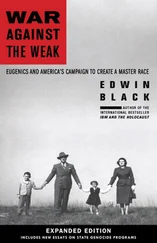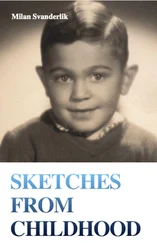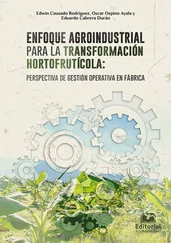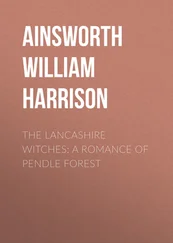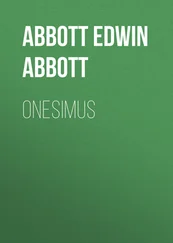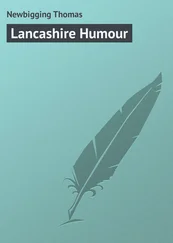Edwin Waugh - Lancashire Sketches
Здесь есть возможность читать онлайн «Edwin Waugh - Lancashire Sketches» — ознакомительный отрывок электронной книги совершенно бесплатно, а после прочтения отрывка купить полную версию. В некоторых случаях можно слушать аудио, скачать через торрент в формате fb2 и присутствует краткое содержание. Жанр: Путешествия и география, foreign_antique, foreign_prose, на английском языке. Описание произведения, (предисловие) а так же отзывы посетителей доступны на портале библиотеки ЛибКат.
- Название:Lancashire Sketches
- Автор:
- Жанр:
- Год:неизвестен
- ISBN:нет данных
- Рейтинг книги:4 / 5. Голосов: 1
-
Избранное:Добавить в избранное
- Отзывы:
-
Ваша оценка:
- 80
- 1
- 2
- 3
- 4
- 5
Lancashire Sketches: краткое содержание, описание и аннотация
Предлагаем к чтению аннотацию, описание, краткое содержание или предисловие (зависит от того, что написал сам автор книги «Lancashire Sketches»). Если вы не нашли необходимую информацию о книге — напишите в комментариях, мы постараемся отыскать её.
Lancashire Sketches — читать онлайн ознакомительный отрывок
Ниже представлен текст книги, разбитый по страницам. Система сохранения места последней прочитанной страницы, позволяет с удобством читать онлайн бесплатно книгу «Lancashire Sketches», без необходимости каждый раз заново искать на чём Вы остановились. Поставьте закладку, и сможете в любой момент перейти на страницу, на которой закончили чтение.
Интервал:
Закладка:
About six o'clock the old fisherman returned home from Ulverstone; and, soon after, two of his sons arrived from Conishead Park, where they had been working at a deep drain. They were tall, hardy-looking men, about middle-age. The old fisherman, who knows the soundings of the sands all round, seemed to think we had picked our way to the island as foolishly as it was possible to do. He talked about the matter as if we had as good a knowledge of the sands as himself, and had set out with the express intention of doing a dangerous exploit. "Now," said he, pointing a good way north of the way we had crossed, "if ye'd ha' come o'er by theer, ye mud ha' done it easy. Bud, what the devil, ye took the varra warst nook o't channel. I wonder as ye weren't draan'd . I've helped to get mony a ane aat o' that hole—baith deead an' alive. I yence pulled a captain aat by th' yure o't' yed, as had sailed all ower t' warld, nearly. An' we'd summat to do to bring him raand, an' all. He was that far geean.... Now, if ye'd ha' getten upo' yon bank," continued he, "ye mud ha' managed to ha' studden till help had come to ye. What, ye wadn't ha' bin varra mich aboon t' middle.... But it's getten near law watter. I mun be off to t' nets. Will ye go daan wi' me?"
There were two sets of "stake nets" belonging to the island; one on the north end, and the other on the western side, in our own memorable channel. The sons went to those on the north; and the old man took a stick in his hand, and a large basket on his arm, and we followed him down the rocks to the other nets. They are great cages of strong network, supported by lofty poles, or stakes, from which they take their name. They are so contrived that the fish can get into them at high water, but cannot escape with the retiring tide. There was rather more than a foot of water at the bottom of the nets; but there was not a fish visible, till the old man stepped in; and then I saw that flukes lay thick about the bottom, half-hidden in the sand. We waded in, and helped to pick them up, till the great basket was about half full. He then closed the net, and came away, complaining that it was "nobbut a poor catch." When we got to the cottage we put on our own clothes, which were quite dry. And, after we had picked out two dozen of the finest flukes, which the old man strung upon a stout cord for ease of carriage, we bade adieu to the fisherman and his family, and we walked away over the sands, nearly by the way we had come to the island.
The sun had gone down behind old Birkrigg; but his westering splendour still empurpled the rugged tops of the Cartmel hills. The woods of Conishead were darkening into shade; and the low of cattle came, mellowed by distance, from the rich pastures of Furness. It was a lovely evening. Instead of going up the green lane which leads to the landward end of Bardsea, we turned southward, along the shore, and took a grass-grown shady path, which winds round the sea-washed base of the hill upon which the church stands and so up into the village by a good road from the beach. The midges were dancing their airy rounds; the throstle's song began to ring clearer in the stilling woods; and the lone ouzel, in her leafy covert, chanted little fits of complaining melody, as if she had lost something. There were other feathered lingerers here and there in those twilight woods, not willing yet to go to rest, through unwearied joyfulness of heart, and still singing on, like children late at play, who have to be called in by their mothers as night comes on. When we drew near my friend's house, he said, "Now, we had better not mention this little affair to our people." But, as we sat at supper that night, I could not help feeling thankful that we were eating fish instead of being eaten by them.
Ramble from Bury to Rochdale
"Its hardly in a body's pow'r
To keep, at times' fra being sour."
One fine afternoon, at the end of February, I had some business to do in Bury, which kept me there till evening. As twilight came on, the skies settled slowly into a gorgeous combination of the grandest shapes and hues, which appeared to canopy the country for miles around. The air was clear, and it was nipping cold; and every object within sight stood out in beautiful relief in that fine transparence, softened by the deepening shades of evening. The world seemed to stand still and meditate, and inhale silently the air of peace which pervaded that tranquil hour of closing day, as if all things on earth had caught the spirit of "meek nature's evening comments on the fuming shows and vanities of man." The glare of daylight is naturally fitted for bustle and business, but such an eventide as this looked the very native hour of devout thought, and recovery from the details of worldly occupation. It is said that the town of Bury takes its name from the Saxon word byri , a burgh, or castle. One of the twelve ancient Saxon fortresses of Lancashire stood in the place now called "Castle Croft," close to the town, and upon the banks of the old course of the river Irwell. Immediately below the eminence, upon which the castle once stood, a low tract of ground, of considerable extent, stretches away from below the semicircular ridge upon which the northern extremity of the town is situated, up the valley of the Irwell. Less than fifty years ago this tract was a great stagnant swamp, where, in certain states of the weather the people of the neighbourhood could see the weird antics of the "Wild Fire," or "Jack o' Lantern," that fiend of morass and fen. An old medical gentleman, of high repute, who has lived his whole life in the town, lately assured me that he remembers well that, during the existence of that poisonous swamp, there was a remarkable prevalence of fever and ague amongst the people living in its neighbourhood; which diseases have since then comparatively disappeared from the locality. There is something rich in excellent suggestions in the change which has been wrought in that spot. The valley, so long fruitful of pestilences, is now drained and cleared, and blooms with little garden allotments, belonging to the working people thereabouts. Oft as I chance to pass that way, on Saturday afternoons, or holidays, there they are, working in their little plots, sometimes assisted by their children, or their wives; a very pleasant scene.
I lingered in the market-place a little while, looking at the parish church, with its new tower and spire, and at the fine pile of new stone buildings, consisting of the Derby Hotel, the Town Hall, and the Athenæum. South Lancashire has, for a very long time past, been chiefly careful about its hard productive work, and practicable places to do it in; and has taken little thought about artistic ornament of any sort; but the strong old county palatine begins to flower out a little here and there, and this will increase as the wealth of the county becomes influenced by elevated taste. In this new range of buildings, there was a stateliness and beauty, which made the rest of the town of Bury look smaller and balder than ever it seemed to me before. It looked like a piece of the west end of London, dropped among a cluster of weavers' cottages. But my reflections took another direction. At "The Derby," there, thought I, will be supplied—to anybody who can command "the one thing needful"—sumptuous eating and drinking, fine linen, and downy beds, hung with damask curtaining; together with grand upholstery, glittering chandelier and looking-glass, and more than enough of other ornamental garniture of all sorts; a fine cook's shop and dormitory, where a man might make shift to tickle a few of his five senses very prettily, if he was so disposed. A beggar is not likely to put up there; but a lord might chance to go to bed there, and dream that he was a beggar. At the other end of these fine buildings, the new Athenæum was quietly rising into the air. The wants to be provided for in that edifice were quite of another kind. There is in the town of Bury, as, more or less, everywhere, a sprinkling of naturally active and noble minds, struggling through the hard crust of ignorance and difficulty, towards mental light and freedom. Such salt as this poor world of ours has in it, is not unfrequently found among these humble strugglers. I felt sure that such as these, at least, would watch the laying of the stones of this new Athenæum with a little interest. That is their grand citadel, thought I; and from thence, the artillery of a few old books shall help to batter tyranny and nonsense about the ears;—for there is a reasonable prospect that there, the ample page of knowledge, "rich with the spoils of time," will be unfolded to all who desire to consult it; and that from thence the seeds of thought may yet be sown over a little space of the neighbouring mental soil. This fine old England of ours will some day find, like the rest of the world, that it is not mere wealth and luxury, and dexterous juggling among the legerdemain of trade, that make and maintain its greatness, but intelligent and noble-hearted men, in whatever station of life they grow; and they are, at least, sometimes found among the obscure, unostentatious, and very poor. It will learn to prize these, as the "pulse of the machine," and to cultivate them as the chief hope of its future existence and glory; and will carefully remove, as much as possible, all unnecessary difficulties from the path of those who, from a wise instinct of nature, are impelled in the pursuit of knowledge by pure love of it, for its own sake, and not by sordid aims.
Читать дальшеИнтервал:
Закладка:
Похожие книги на «Lancashire Sketches»
Представляем Вашему вниманию похожие книги на «Lancashire Sketches» списком для выбора. Мы отобрали схожую по названию и смыслу литературу в надежде предоставить читателям больше вариантов отыскать новые, интересные, ещё непрочитанные произведения.
Обсуждение, отзывы о книге «Lancashire Sketches» и просто собственные мнения читателей. Оставьте ваши комментарии, напишите, что Вы думаете о произведении, его смысле или главных героях. Укажите что конкретно понравилось, а что нет, и почему Вы так считаете.

